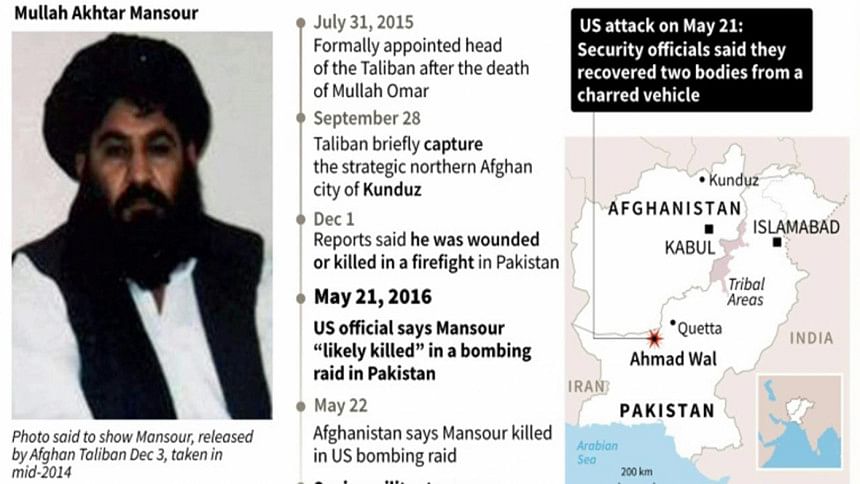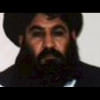Obama confirms Taliban leader's death in US strike

President Barack Obama on Monday confirmed Taliban chief Mullah Akhtar Mansour was killed in a US air strike, hailing his death as an "important milestone" in efforts to bring peace to Afghanistan.
Saturday's bombing raid, the first known American assault on a top Afghan Taliban leader on Pakistani soil, marks a major blow to the militant movement, which saw a new resurgence under Mansour.
"We have removed the leader of an organisation that has continued to plot against and unleash attacks on American and Coalition forces, to wage war against the Afghan people, and align itself with extremist groups like Al-Qaeda," the US president said in a statement.
Senior Taliban sources have also confirmed the killing to AFP, adding that a shura (council) is under way to select a new leader.
Obama, who is on a three day visit to Vietnam, said Mansour had rejected efforts "to seriously engage in peace talks and end the violence that has taken the lives of countless innocent Afghan men, women and children."
He called on the Taliban's remaining leadership to engage in peace talks as the "only real path" to ending the attritional conflict.
Mansour was elevated to the leadership of the Taliban in July 2015 following the revelation that the group's founder Mullah Omar had died two years earlier.
He was killed on Saturday near the town of Ahmad Lal in Pakistan's south western Balochistan province, when missiles fired from a drone struck the car he was travelling in.
It was believed to be the first time the United States has targeted a senior Taliban figure in Pakistan.
Pakistan, which says it is hosting the Afghan Taliban's top leadership in order to exert influence over them, has lambasted the United States over the drone attack, calling it a violation of its sovereignty.
In his statement, Obama said American forces would continue to go after threats on Pakistani soil.
"We will work on shared objectives with Pakistan, where terrorists that threaten all our nations must be denied safe haven," he said.
Blow to US-Pakistan ties?
But the strike could signal a fresh blow for US-Pakistan ties, which have improved markedly in recent years since the killing of Al-Qaeda founder Osama Bin Laden in 2011.
The US has carried out hundreds of drone strikes in the Pakistan, mainly in the country's border tribal regions with Afghanistan, with leaked documents showing Islamabad had quietly consented, despite publicly protesting.
This time, however, both sides insist Pakistan was informed only after the fact. Leaked diplomatic cables from 2010 had indicated that Islamabad wanted the southwestern province of Balochistan, home to a separatist insurgency, to remain off-limits.
The meeting of the Taliban's Supreme Council continued into its second day Monday, according to senior militant sources, though the group has yet to release an official statement.
A senior Taliban source told AFP the killing had sent shockwaves through the leadership and many were laying low in Pakistan while some had fled across the border to Afghanistan.
"The shura meeting is continuing at an undisclosed location, they keep on moving due to the fear of US drone strike," the source told AFP.

 For all latest news, follow The Daily Star's Google News channel.
For all latest news, follow The Daily Star's Google News channel. 




Comments